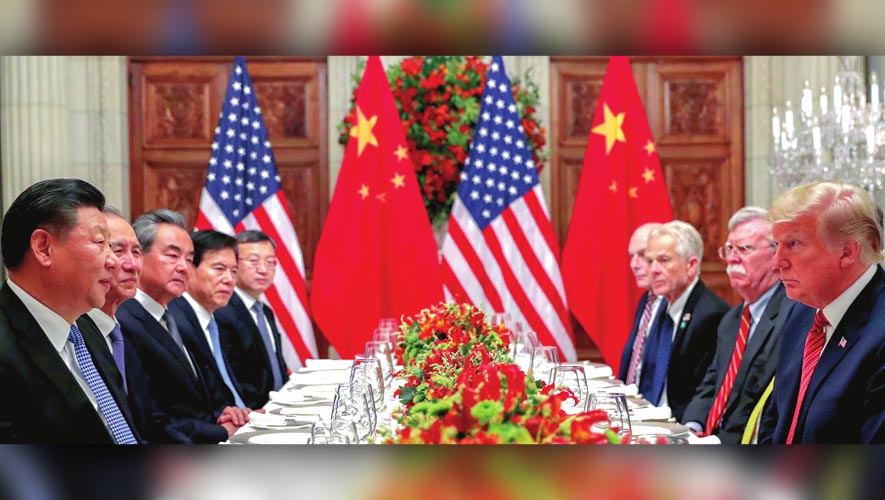The spate of events in Asean is one of disarray. While each member of Asean country pledges to keep the region away from the intrusion of big powers, instead contestation festers within.
For the latest Cambodian Business news, visit Khmer Times Business
China is flexing its muscles with the US striving to balance China’s influence through many initiatives such as greater military presence felt in the South China Sea, its Indo-Pacific initiative and security cooperation, weapon sales and through US quadrilateral affiliation.
China’s military alliance with countries such as Cambodia and Laos, and individual Asean countries aligning themselves with various superpowers have put the entire Asean centrality under siege.
Asean is supposed to honour its pledge of keeping the region free from outside interference and embrace the concept of “peace, freedom and neutrality”. But, it appears to have gone the other way or has the potential of going the other way.
In light of this, it is important to democratise Asean by giving a bigger voice to more people in Asean, thus removing the bond of decision making to a few of its leaders.
A step towards that is the establishment of the regional parliamentary institution in 1977. At the time of formation of the Asean Inter-Parliamentary Organisation (AIPO), Asean was merely a club of dictators, raising questions on its creation. In 2007, AIPO became the Asean Inter-Parliamentary Assembly (AIPA).
AIPA is not part of the Asean institutional structure but listed as an entity associated with Asean as it is still a consultative body which meets only once a year for a few days in its General Assembly.
These delegations are mere government representatives with the MPs closely affiliated with those in power in their respective nations. It does not guarantee the quality of resolutions passed, thanks to the obvious.
Calls are being made by member countries to elevate AIPA to a full-fledged regional parliament in tandem with making Asean more inclusive but this has only received a lukewarm response.
Greater participation of the 600 million people is achievable through wider parliamentary representations. However, has the time come for an Asean parliament modelled after the EU parliament?
The case for an Asean Parliament would allow for greater representation of Asean people that embraces the concerns and needs of the entire region and not just the leaders of Asean.
A case in point, one of the big issues facing Asean is the movement of labour within the region. While the establishment of the AEC has led to eliminating tariff barriers, reducing costs and enhancing competitiveness among Asean member states, it does not include the free movement of labour within the region.
The ‘Asean citizen’ will only materialise if there is greater voice given to the masses. The decision process in Asean is limited to the 10 leaders accompanied by their foreign affairs ministers and some high officials.
This is certainly not representative of the entire Asean population with its diverse political spectrum and the existence of a large number of opposition parties in the various parliaments among the 10 member states.
Keeping the representatives of the countries to the top leadership is not sufficient as it does not help in the growth of the political process in the region.
Take Thailand, Myanmar and even Indonesia, for example. The opponents to the military junta do not have a voice within the Asean.
Would the democratic process in Thailand, for example, be smoother and more transparent had the opposition formed a representation within Asean?
The same applies to Myanmar where several minority groups are misrepresented both on the national and international level. This rot has damaged the image of Myanmar internationally. Asean did nothing to fix it. Why? Perhaps again it was due to a lack of focus on the association’s centrality?
Indonesia is reeling with the rise of religious rhetoric while Asean is sitting on the fence, allowing the country to fall into a difficult trap.
The point is that Asean could become the movement that sparks greater public assertiveness in its member countries. This is essential in today’s world with massive disruptions seen across all sectors on a global scale.
Perhaps, Asean should start adopting what the EU has done that is getting parliamentarians involved in the process of community building.
The concept of Asean must not be just to serve the needs of the leaders and their businesses. A more wholesome inclusive framework that represent the voice of the people should be considered. Maybe it is time for an Asean parliament to move forward.
Sathish Govind is a Contributing Writer, Capital Cambodia
An ex-analyst in a think tank in Malaysia




